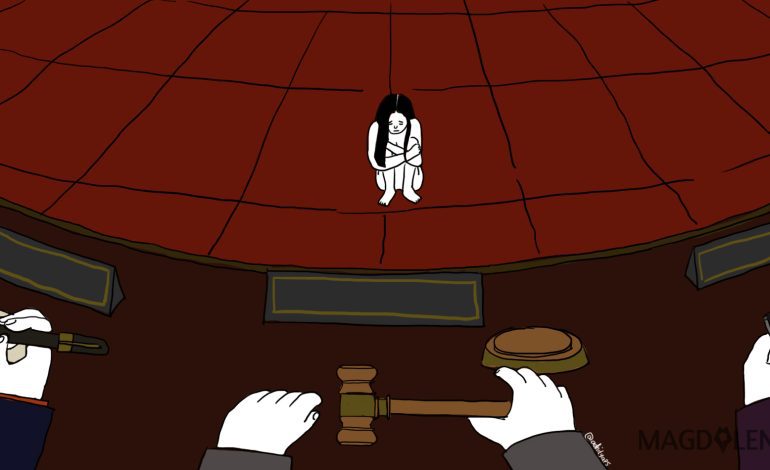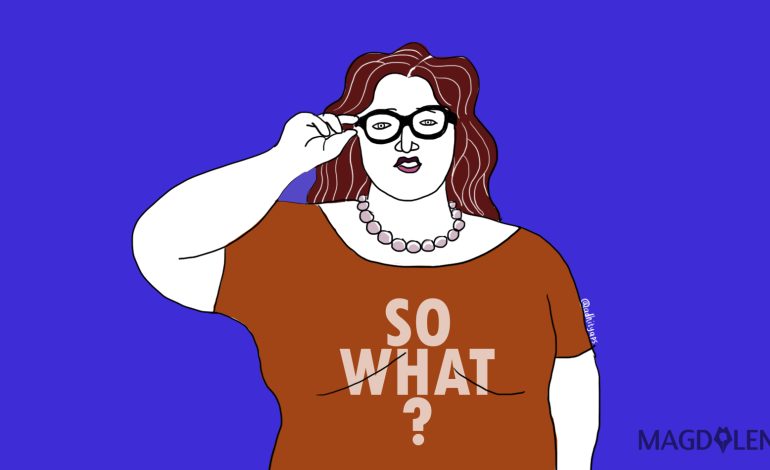Why Indonesia Needs Anti-Sexual Violence Law

For the last few years, women’s rights activists have been pushing Parliament to improve the legislation on sexual violence, and the National Commission on Violence Against Women (Komnas Perempuan) has drafted the anti-sexual violence bill, but it never seemed to be a priority in the legislature.
Only after the senseless death of “Y”, who was tragically raped and murdered by 14 people last month, did legislators at the House of Representatives begin to pay attention to the urgency of such bill. Finally it agreed to include the bill in this year’s National Legislation Program, which means it will be up for discussion in Parliament later this year.
The latest development has the public to thank for. Lentera Indonesia, a support group for sexual violence survivors, and Magdalene put up a petition to push for the passing of the bill, and the petition has since drawn over 64,000 signatures. As other sexual violence cases emerged in the media in the past three weeks, many figures also lent their voices to the cause.
But how important is it for Indonesia to have a specific regulation on sexual violence? Komnas Perempuan has created a pamphlet that shows the urgency of the law, and we summed it up for you here.
How bad is sexual violence in Indonesia?
Very bad. Komnas Perempuan’s 2015 data shows that every day at least 35 women and girls experience sexual violence. That means every two hours, three women became victims of sexual violence. Keep in mind that this number is merely the tip of iceberg.
The perpetrator can be anyone, but the majority of them are those close to the victims – blood relatives, husbands or relatives. Sexual violence also attacks victim of all ages, even children and toddlers, as shown in recent cases reported in the media.
The impact of sexual violence goes far beyond physical and psychological, but also sexual (damaged or dysfunctional sexual organ), social relations (isolation, stigmatization, decreased well-being), educational (being expelled from school) and economy (losing access to jobs because of stigma and psychological damage).
Why does Indonesia need an anti-sexual violence law?
The existing law and regulations are limited and insufficient:
- The Criminal Code (KUHP) only categorizes rape as penal penetration into vagina, and physical coercion. But rape patterns and sexual violence types are actually varied. Komnas Perempuan defines 15 types of sexual violence, they are: rape; sexual harassment; sexual exploitation; sexual torture; sexual slavery; intimidation, threat and rape attempt; forced prostitution; forced pregnancy; forced abortion; forced marriage; women trafficking for sexual purpose; sexual control; inhumane punishment and with sexual nuance; custom practice with sexual nuance that is harmful for women; and forced sterilization/contraception.
- The Criminal Code does not recognize sexual harassment. Sexual harassment case can only be processed with the article on molestation if it involves physical contact.
- Sexual exploitation is mistakenly regulated in Pornography Law, which highly emphasizes the morality aspect. This can lead to the re-victimization of the victims.
- The Criminal Code and Health Law ban abortion without considering the context, thus criminalizing women who do abortion.
- There are other laws that regulate sexual violence, such as Domestic Violence Law, Child Protection Law, Human Trafficking Law and Human Rights Court Law. However, these laws can only be used in limited scopes – within household, only for children, involving migration, or within the context of grave human rights violation.
- The Criminal Law Procedure (KUHAP) does not see victims as subjects in the criminal justice system, and does not address the recovery mechanism for victims.
- The amendment process of KUHP and KUHAP has been going at a very slow pace and seems to have lost directions. The debate tends to focus on morality issues instead of providing justice for victims.
Will the anti-sexual violence law overlap with other regulations?
No. Instead it will fill in and close the gaps in the existing laws on sexual violence. This way law enforcement will be oriented towards the fulfillment of victims’ rights to truth, justice and recovery.
What are the things regulated in the anti-sexual violence law?
The law stipulates the definitions and forms of sexual violence, prevention, protection and the rights of witness and victims, victims’ recovery, trial of sexual crimes, punishments for sexual violence, compensation as part of punishment, rehabilitation of perpetrators as part of punishment, the obligation of the state, and the community roles in preventing and addressing sexual violence.
The law specifies support for victims’ recovery, compensation for victims, rehabilitation for the perpetrators, as well as trial procedures of sexual crime. If passed, this law will protect everyone, particularly women, children and other vulnerable groups.
To continue the conversation and support the campaign against sexual violence, visit campaign.com/mulaibicara.






















